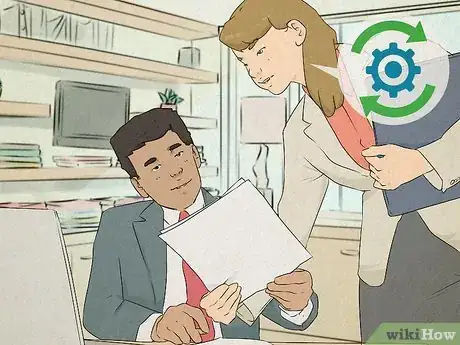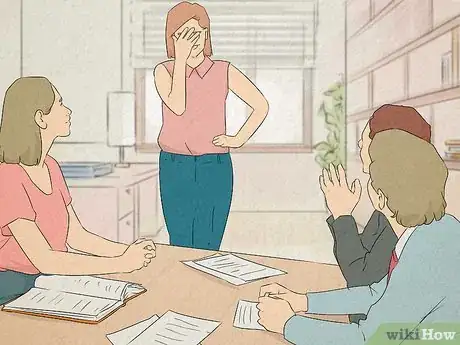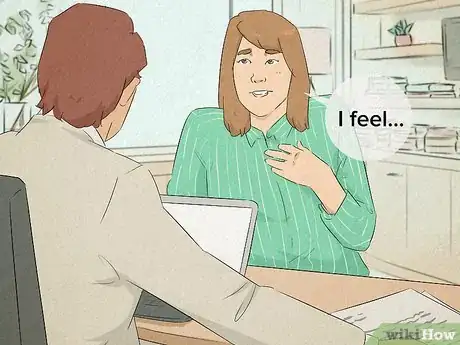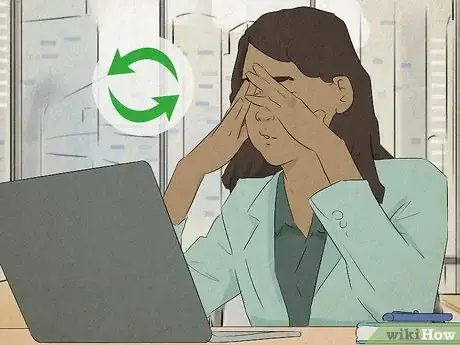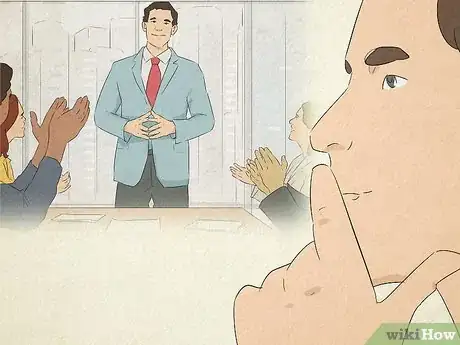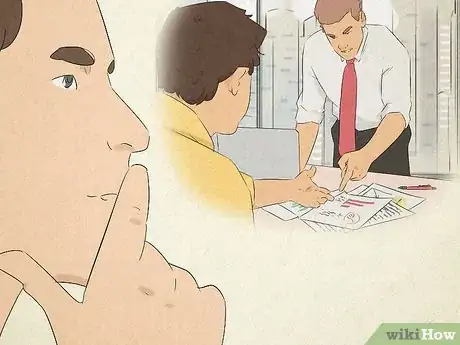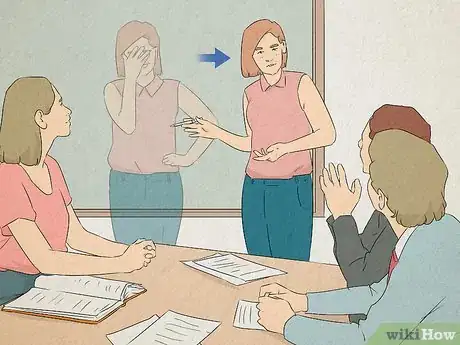This article was co-authored by Donna Novak, Psy.D and by wikiHow staff writer, Janice Tieperman. Dr. Donna Novak is a Licensed Clinical Psychologist based in Simi Valley, California. With over ten years of experience, Dr. Novak specializes in treating anxiety and relationship and sex concerns. She holds a BA in Psychology from the University of California, Los Angeles (UCLA) and a doctoral degree (Psy.D) in Clinical Psychology from Alliant International University-Los Angeles. Dr. Novak uses a differentiation model in treatment that focuses on personal growth by increasing self-awareness, personal motivation, and confidence.
There are 9 references cited in this article, which can be found at the bottom of the page.
This article has been viewed 20,015 times.
After a slip-up at work, you might be ready for the floor to swallow you whole. It’s okay—there are plenty of healthy, productive ways to recover from your mistake instead of dwelling on it. We’ve put together a few tips and tricks to help you get started.
Steps
Expert Q&A
Did you know you can get expert answers for this article?
Unlock expert answers by supporting wikiHow
-
QuestionHow do I stop worrying about mistakes at work?
 Donna Novak, Psy.DDr. Donna Novak is a Licensed Clinical Psychologist based in Simi Valley, California. With over ten years of experience, Dr. Novak specializes in treating anxiety and relationship and sex concerns. She holds a BA in Psychology from the University of California, Los Angeles (UCLA) and a doctoral degree (Psy.D) in Clinical Psychology from Alliant International University-Los Angeles. Dr. Novak uses a differentiation model in treatment that focuses on personal growth by increasing self-awareness, personal motivation, and confidence.
Donna Novak, Psy.DDr. Donna Novak is a Licensed Clinical Psychologist based in Simi Valley, California. With over ten years of experience, Dr. Novak specializes in treating anxiety and relationship and sex concerns. She holds a BA in Psychology from the University of California, Los Angeles (UCLA) and a doctoral degree (Psy.D) in Clinical Psychology from Alliant International University-Los Angeles. Dr. Novak uses a differentiation model in treatment that focuses on personal growth by increasing self-awareness, personal motivation, and confidence.
Licensed Clinical Psychologist
-
QuestionHow do I recover from being embarrassed around others?
 Donna Novak, Psy.DDr. Donna Novak is a Licensed Clinical Psychologist based in Simi Valley, California. With over ten years of experience, Dr. Novak specializes in treating anxiety and relationship and sex concerns. She holds a BA in Psychology from the University of California, Los Angeles (UCLA) and a doctoral degree (Psy.D) in Clinical Psychology from Alliant International University-Los Angeles. Dr. Novak uses a differentiation model in treatment that focuses on personal growth by increasing self-awareness, personal motivation, and confidence.
Donna Novak, Psy.DDr. Donna Novak is a Licensed Clinical Psychologist based in Simi Valley, California. With over ten years of experience, Dr. Novak specializes in treating anxiety and relationship and sex concerns. She holds a BA in Psychology from the University of California, Los Angeles (UCLA) and a doctoral degree (Psy.D) in Clinical Psychology from Alliant International University-Los Angeles. Dr. Novak uses a differentiation model in treatment that focuses on personal growth by increasing self-awareness, personal motivation, and confidence.
Licensed Clinical Psychologist
References
- ↑ https://www.psychologytoday.com/us/blog/fulfillment-any-age/201412/the-best-way-deal-embarrassment
- ↑ https://www.cnbc.com/2019/07/15/heres-exactly-what-to-doand-sayafter-youve-made-a-mistake-at-work.html
- ↑ https://www.nbcnews.com/better/health/why-science-good-health-favors-those-who-can-laugh-themselves-ncna781256
- ↑ https://www.forbes.com/sites/juliawuench/2020/08/03/move-past-shame-at-work-with-these-3-simple-steps/?sh=295b0b2b52b2
- ↑ https://www.psychologytoday.com/us/blog/constructive-wallowing/201804/embarrassed-heres-how-get-over-it-quickly
- ↑ https://www.forbes.com/sites/markmurphy/2016/11/03/dont-hide-your-face-when-you-make-a-mistake-jump-right-back-into-that-situation/
- ↑ https://psychcentral.com/blog/how-to-overcome-embarrassment#4
- ↑ https://psychcentral.com/blog/how-to-overcome-embarrassment#10
- ↑ https://www.cnbc.com/2019/07/15/heres-exactly-what-to-doand-sayafter-youve-made-a-mistake-at-work.html

